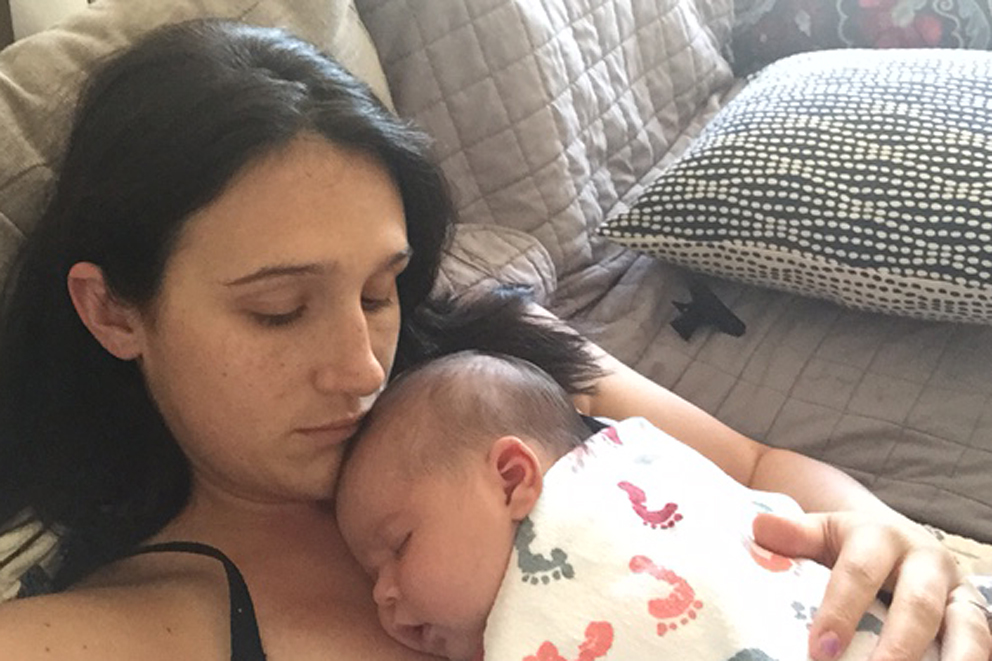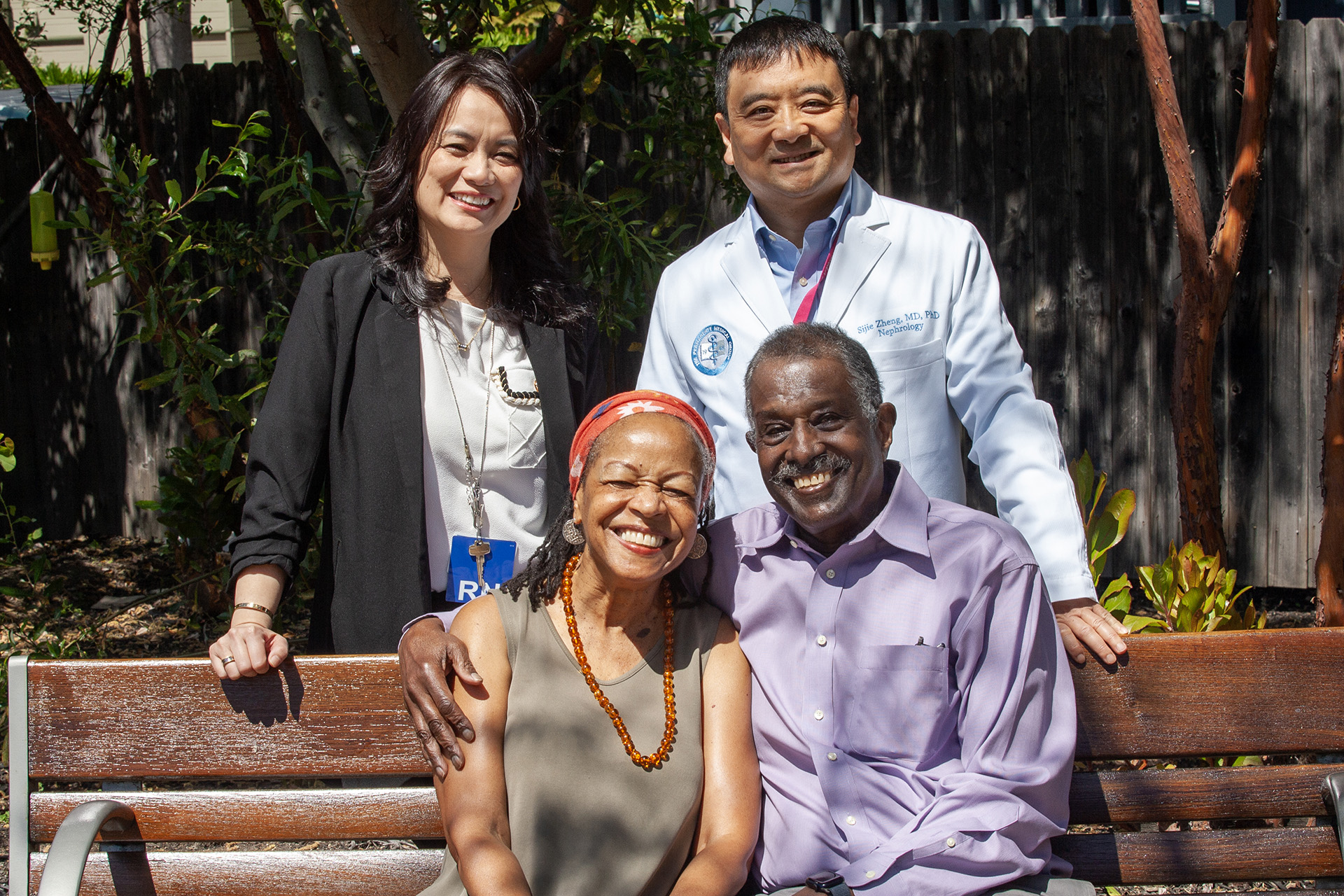By providing education, support, and one-on-one consulting for new moms, Kaiser Permanente Northern California has become a national leader in exclusive breastfeeding. Pictured above, new mom Ashley Berry bonds with her newborn.
At Kaiser Permanente Northern California, helping new mothers to breastfeed is a top priority — and more than 40,000 babies and their moms are benefiting from this focused effort each year.
A publicly reported national quality measure, the Joint Commission Exclusive Breast Milk Feeding, looks to see what percentage of newborns are breastfed exclusively from birth while in the hospital. More than half of U.S. hospitals fall below the national benchmark of at least 50 percent. At Kaiser Permanente Northern California, however, the current rate for new mothers who exclusively breastfeed is more than 80 percent.
What is Kaiser Permanente Northern California doing to achieve such impressive results?
“The organization has an integrated, team approach in place throughout the region,” said Lisa Cowan, DNP, regional director of Maternal Child Health at Kaiser Permanente Northern California. “This includes promoting breastfeeding in prenatal visits, offering breastfeeding support groups pre- and post-partum, and one-to-one calls and visits with lactation consultants.”
In addition, nurses who provide care for moms and babies are trained to provide breastfeeding education and coaching in the hospital — lactation support is consistent, even if a lactation consultant is not available.
Kaiser Permanente Northern California also attracts a member base that is interested in health, disease prevention, and well-being.
“We attract members who understand Kaiser Permanente’s philosophy of wellness — we want to further support their health goals,” said Cowan.
Personalized Attention
New mom Ashley Berry of Pinole, California, welcomed her second child at the Kaiser Permanente Oakland Medical Center last spring. Berry was given literature about breastfeeding in her prenatal appointments as well as information about breastfeeding classes.
“Soon after I gave birth to my second child, I saw a lactation consultant in my hospital room. She taught me to pay attention to things I never thought about before, like body mechanics. She knew that if I got fatigued, I’d be less likely to breastfeed,” Berry said.
Cowan said that there’s a misconception that women should know how to breastfeed innately, but like anything else it takes practice, and mom and baby have to learn together.
“It can be challenging,” added Cowan. “However, with the right support and education, a new mom’s ability to breastfeed successfully goes up exponentially.”
Kaiser Permanente Northern California also regularly meets with a Maternal Child Health Patient and Family Advisory Council consisting of new mothers to listen to their birth and postpartum stories — often centered around the joys and challenges of breastfeeding. These conversations help improve the region’s approach to maternal health care delivery so moms-to-be have even better experiences.
Breastfeeding Benefits for Mom and Baby
“Breast milk contains antibodies to prevent bacterial and viral infections in the first few months of life,” said Cowan. “It also may lower the risk of asthma, allergies, diabetes, obesity, and sudden infant death syndrome (SIDS).”
Cowan added that there are many benefits for moms, too, including a decrease in blood loss postpartum; a decrease in the risk of breast, uterine, and ovarian cancers; prevention of osteoporosis; a decrease in post-partum depression and anxiety; and an increase in mother and baby bonding.
It’s also cost-effective and there isn’t any bottle-cleaning or prep associated with mixing formula — exhausting tasks for new, sleep-deprived parents.
An Integrated Approach
“From our physicians and nurses supporting breastfeeding, to listening to our patients’ stories — we all agree that if we keep our moms and babies well, we are setting them up for health in the long run,” Cowan said.
In the case of Berry, her Kaiser Permanente lactation consultant continues to be available if Berry needs more help.
Now 2 months postpartum, breastfeeding is going smoothly for Berry and her baby, and Berry says she plans to continue for as long as she can.
For more information about breastfeeding support at Kaiser Permanente Northern California, please visit: https://thrive.kaiserpermanente.org/easier-health-care/maternity/baby-101/breastfeeding





This Post Has 0 Comments